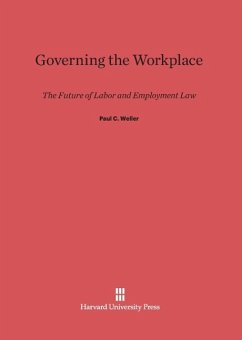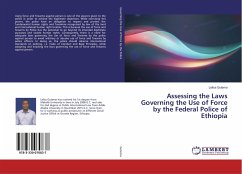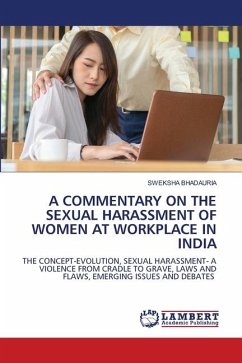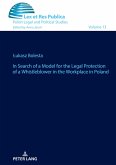Governing the Workplace is thoughtful, articulate, and stimulating...[It] should be read by everyone concerned about industrial relations and labor and employment law.
Weiler's book makes it clear that labor law reform is inexorably bound with other issues in workplace reorganization...This is a useful volume that will help trade unionists and labor educators analyze the major issues involved in determining how the workplace should be governed in the next century.
Governing the Workplace is of immense value to those interested in the future of American labor law. It is a kaleidoscopic journey, ranging from voluminous empirical data about the operation of the modern workplace to scholarly analyses drawing on law, economics, industrial relations, and critical theory. It contains an education about work, the law, and the intersection of the two...If one wishes to turn to a single book to gain an understanding of the workplace today and of the themes of academic debate about how the workplace should be governed, this book unquestionably is my first choice.
Weiler's book makes it clear that labor law reform is inexorably bound with other issues in workplace reorganization...This is a useful volume that will help trade unionists and labor educators analyze the major issues involved in determining how the workplace should be governed in the next century.
Governing the Workplace is of immense value to those interested in the future of American labor law. It is a kaleidoscopic journey, ranging from voluminous empirical data about the operation of the modern workplace to scholarly analyses drawing on law, economics, industrial relations, and critical theory. It contains an education about work, the law, and the intersection of the two...If one wishes to turn to a single book to gain an understanding of the workplace today and of the themes of academic debate about how the workplace should be governed, this book unquestionably is my first choice.
Governing the Workplace is thoughtful, articulate, and stimulating...[It] should be read by everyone concerned about industrial relations and labor and employment law.
Weiler's book makes it clear that labor law reform is inexorably bound with other issues in workplace reorganization...This is a useful volume that will help trade unionists and labor educators analyze the major issues involved in determining how the workplace should be governed in the next century.
Governing the Workplace is of immense value to those interested in the future of American labor law. It is a kaleidoscopic journey, ranging from voluminous empirical data about the operation of the modern workplace to scholarly analyses drawing on law, economics, industrial relations, and critical theory. It contains an education about work, the law, and the intersection of the two...If one wishes to turn to a single book to gain an understanding of the workplace today and of the themes of academic debate about how the workplace should be governed, this book unquestionably is my first choice.
Weiler's book makes it clear that labor law reform is inexorably bound with other issues in workplace reorganization...This is a useful volume that will help trade unionists and labor educators analyze the major issues involved in determining how the workplace should be governed in the next century.
Governing the Workplace is of immense value to those interested in the future of American labor law. It is a kaleidoscopic journey, ranging from voluminous empirical data about the operation of the modern workplace to scholarly analyses drawing on law, economics, industrial relations, and critical theory. It contains an education about work, the law, and the intersection of the two...If one wishes to turn to a single book to gain an understanding of the workplace today and of the themes of academic debate about how the workplace should be governed, this book unquestionably is my first choice.







